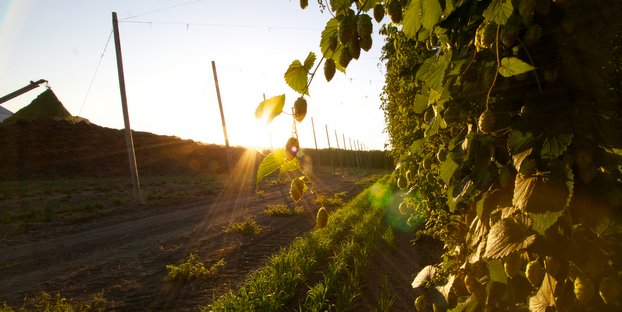
Just as creatively hopped craft beers have captured the taste buds and wallets of consumers, so too has the passion and entrepreneurial spirit of the craft brewing industry captured the hopes of small hop growers across the country. Since we’ve started, Craft Brewing Business has covered the growth of small, independent hop growers and other agricultural start-ups that have sought to support the craft beer movement on a local level. It’s also a trend that larger hop growers, like Crosby Hop Farm LLC, and distributors, like BSG CraftBrewing and Hopunion LLC, have noticed.
“We believe that craft was built on the idea of small, independent business and encouraging local support whenever possible,” said Melody Meyer, marketing manager with Hopunion LLC. One of the biggest names in the hop industry, Hopunion LLC is a grower-owned supplier of premium hops and hop products for craft brewers worldwide, and 100 percent of its business is focused on the craft and homebrew industries. “We believe that the emergence of small, local farms will continue, and we support those growers in their efforts. With demand for aroma varieties continuing to rise, there is room in the marketplace for additional supply.”
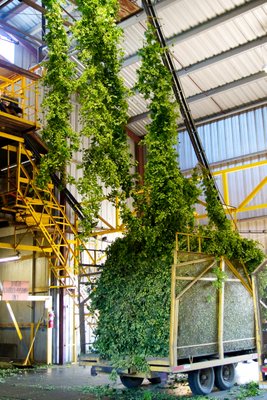
Sean McGree, hop specialist with BSG CraftBrewing, a merchant and pellet processor that sells exclusively to the craft brewing industry, agreed:
“I think the new hop farms have been great,” he said. “I have been in this industry long enough to witness a dwindling grower base — less than 40 growers in the Northwest today — and major brewers reducing hopping rates every year to almost the point of extinction. The craft brewing industry has generated some major excitement, and the new hop farms have popped up as a result.”
While the hop industry expansion is exciting for the industry, there is one lingering concern: quality. It’s true, hops are hardy plants that can grow in just about any climate, but there are myriad challenges that face small start-up growers, from building the proper infrastructure of trellises to buying support equipment like hop pickers, kilns, balers and tractors.
“Most of the quality that brewers see, maybe 60 percent, happens at harvest — when the hop is picked, how it’s handled, dried, cooled, baled and pelletized,” McGree explained. “Most of the farms that I am aware of have worried more about putting in trellises and pay very little attention to harvest. That is beginning to change. I know many farms are purchasing Wolf picking machines from Germany, which is the perfect size of picker for small operations. I also know of drying kilns being installed by some growers. The only thing left to master is the farmer experience, which they will gain over time.”
With the focus on retaining quality, Hopunion LLC plans to continue to support new growers in their efforts. The company’s lab, Alpha Analytics®, for example, is committed to providing hop analysis services to growers both big and small throughout the United States, and through those services, Meyer reports seeing high-quality hops come from these farms.
“I believe small hop farmers are an excellent way for local brewers to have access to freshly picked hops for seasonal wet hop beers and possibly more extensive volume in the future,” said Beau Evers, inside sales manager for Crosby Hop Farm LLC, a grower with 275 acres that focuses on Cascade, Centennial, Chinook, Crystal, Golding, Nugget, Mt. Hood, Sterling and Willamette, with the majority of it supplied directly to the craft brewing industry. The company also distributes a variety of hops from its growing partners. “It’s a wide open world for these small growers, and we applaud their efforts.”
Crafting contracts
The hop industry is growing because craft brewing is growing overall. Every day it seems that a new craft brewery sprouts up in all 50 states. The latest numbers from the Brewers Association show that nearly 400 new breweries opened in 2013. So, what does a growing craft industry, an increase in hop growers and big demand for beer and hops alike mean to you, the craft brewer? One word: contracts.
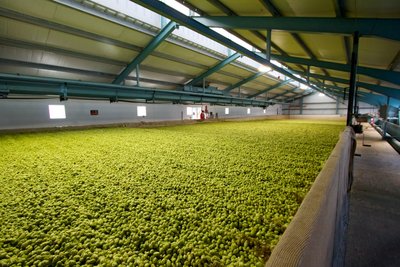
As an agricultural product, hops don’t have the luxury of adapting quickly to the demands of an exploding industry. Crops are subject to the whims of weather. Because of this, many hop growers plant more than they’re contracted for in the coming year. As a brewer, if you want to make sure you get your hops, you need a strong contract with a trusted grower.
“The craft brewing industry just topped 2,700 breweries and just reached an estimated usage of 1.3 pounds of hops per barrel at the end of 2013,” Evers said. “Some advice I would give to brewers is to develop personal relationships with growers and suppliers and visit their facilities during harvest to fully understand the amount of effort it takes to grow, pick, kiln-dry, bale, pelletize and process hops to be ready for the kettle.”
Creating a solid contract is key for any craft brewery. In fact, with no minimum quantity for a hop contract, Hopunion LLC goes as far as encouraging all breweries to contract their basic hop needs at least 12 years out.
“We only have to look back at 2007-2008 to see a time when brewers did not get hops because they didn’t have contracts. BSG encourages brewers to contract 100 percent in the current year, then maybe 80 percent for the following year, 60 percent for two years out …” — Sean McGree, hop specialist with BSG CraftBrewing“More than 90 percent of all breweries are contracted, some for as little as 88 lbs. In addition to ensuring supply for future needs, contracts act as an essential communication tool between hop growers and craft brewers,” Meyer said. “Our growers base acreage expansions on projected hop needs, as indicated through future contracts. Expansion is extremely expensive for hop farmers and, therefore, essential to understand. For this reason, we encourage hop contracts to help facilitate better communication, from farm to kettle.”
“I cannot emphasize enough the importance of hop contracts,” McGree echoed. “We only have to look back at 2007-2008 to see a time when brewers did not get hops because they didn’t have contracts. BSG encourages brewers to contract 100 percent in the current year, then maybe 80 percent for the following year, 60 percent for two years out, etc. As the brewer enters a new crop/brewing year, he or she simply needs to top up. This strategy can protect the hops required for flagship brands and provide flexibility for new varieties and new beers. The actual percentages are not important. Each brewer needs to set figures based on his or her own comfort levels.”
With that demand in mind, it’s a good idea, as a brewer, to remain flexible when creating beer recipes.
“In addition to capacity issues, mother nature has dramatically affected the last four hop crops,” McGree said. “Amarillo is a good example of a dependable variety that didn’t come close to normal production in 2011 and 2012. The shortages that occurred are well documented. Brewers should strive to have a good substitution strategy for all the varieties they purchase or, at a minimum, look at hop blends that will achieve a similar taste in the beer. Most importantly, contract for your hop needs to make sure your supply is protected.”
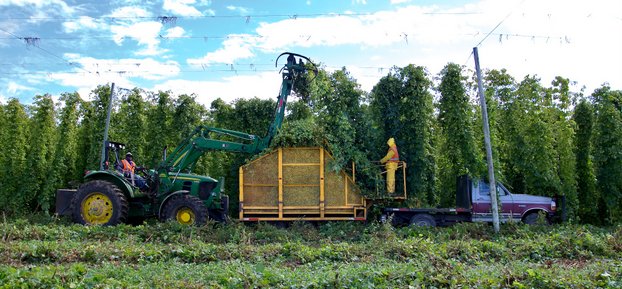
Variety is the spice of beers
As the industry grows, meeting the demand for hops remains a challenge for any size grower and/or distributor. “Acreage has expanded so quickly that growers now face picking and drying capacity issues,” BSG CraftBrewing’s McGree said. “I believe supply will continue to be tight for most varieties in 2014. Growers are searching for new acreage right now as plantings will begin around the first of March.”
What are the most in-demand varieties? Both Crosby Hop Farm’s Evers and Hopunion LLC’s Meyer reported that the most popular varieties in 2013 were: Cascade, Centennial, Chinook, Columbus, Citra® Brand HBC 394cv., Simcoe® Brand YCR 14 cv., Amarillo® VGXP01, Crystal, Willamette, Saaz and Golding. The proprietary hops — Citra® Brand HBC 394cv., Simcoe® Brand YCR 14 cv., Amarillo® VGXP01 — continue to be widely sought after hops, often outpacing supply. Additionally, Cascade, Centennial, Chinook, Columbus, Crystal, Willamette, Saaz and Golding have also enjoyed strong popularity.
“There are a lot of new and interesting aroma hops coming to market in the near future from both public and private breeding programs,” Evers said.
“Demand for aroma hops continues to rise across most every variety. In 2012, 41.6 percent of U.S. hop acreage was dedicated to aroma hops, 62.7 percent in 2013,” Meyers added. “Based on what we are seeing in the industry, this number will continue to grow in 2015 and beyond.”

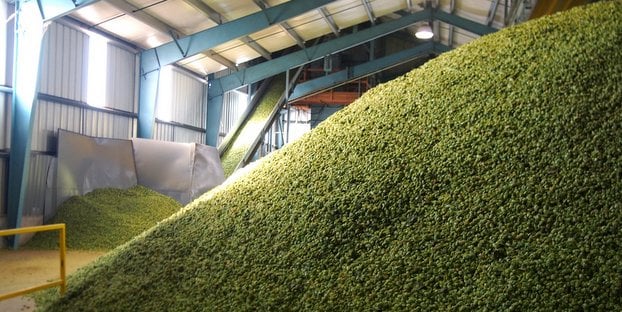
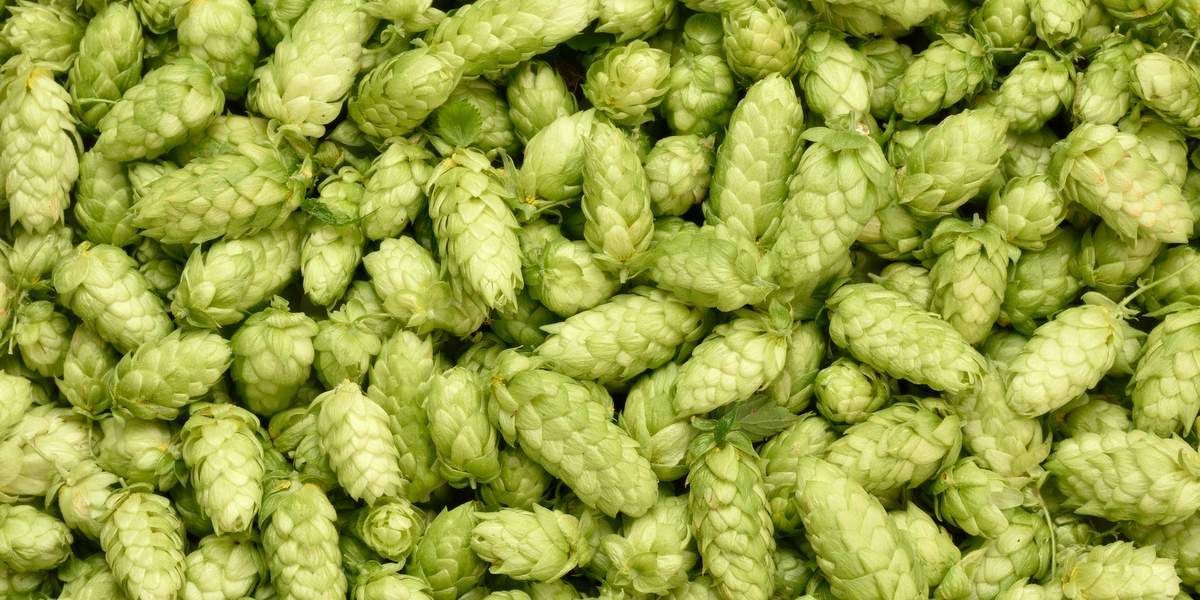
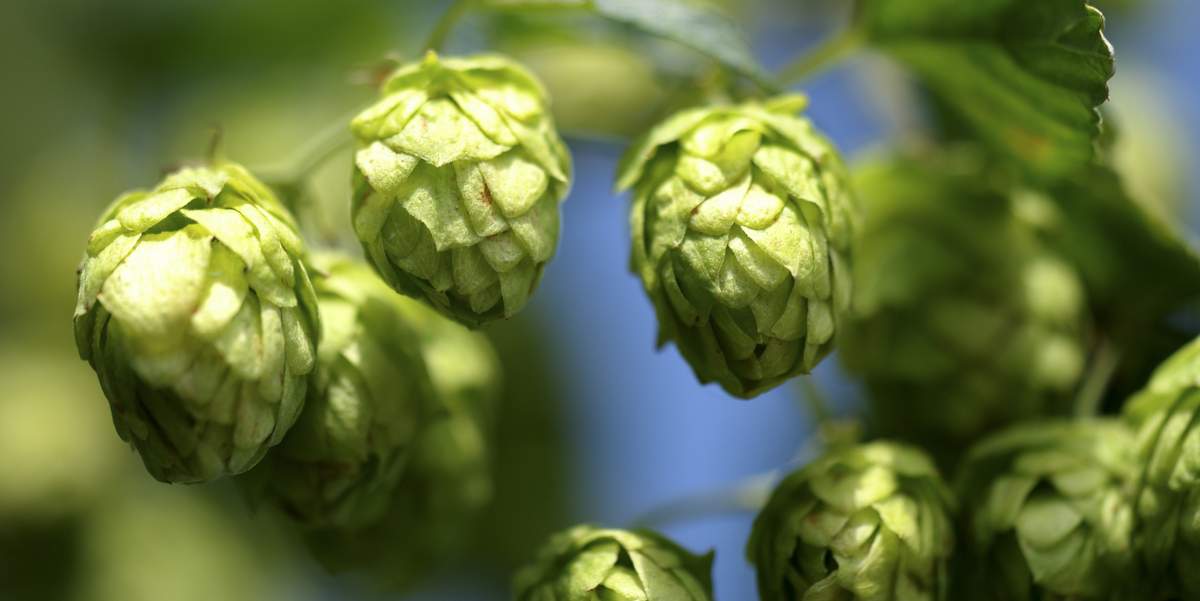
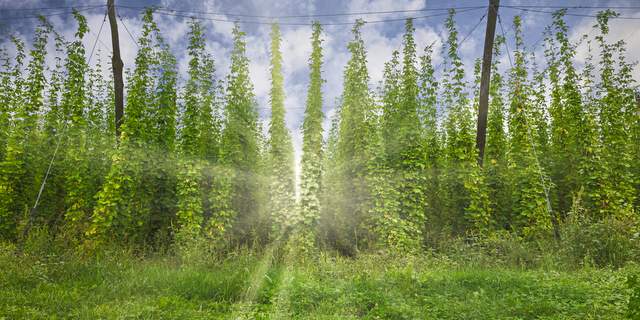
Bad pun, good article from @craftbrewingbiz: Hip Hops, How #CraftBeer Is Impacting #Hops Growers http://t.co/D4eQVo7Hzg
Hip hops: Craft #beer’s impact on a growing industry – @CraftBrewingBiz http://t.co/HgM0kI5bhO #craftbeer
Great #craftbeer article on @CraftBrewingBiz: Hip hops: Craft beer’s impact on a growing industry http://t.co/sYmn6i13na
RT @brewtoad: Learn about #Craftbeer’s impact on the growing hops industry here: http://t.co/YDG2vcmyH7 #Homebrew #Brewtoad http://t.co/6nR…
Learn about #Craftbeer’s impact on the growing hops industry here: http://t.co/YDG2vcmyH7 #Homebrew #Brewtoad http://t.co/6nRXaxLKVI
This is an interesting read on the state of the hop industry. While there is no shortage of hops overall, there… http://t.co/sQi8hOsnkt
Hip hops: Craft beer’s impact on a growing industry https://t.co/p0me0wdLGE
“In addition to ensuring future supply, contracts act as a communication tool between hop growers and craft brewers.” http://t.co/beT50qiy4f
RT @CraftBrewingBiz: Craft beer’s impact on the growing hop industry: http://t.co/uoT0JouLw7 #sundayreading
RT @CraftBrewingBiz: Craft beer’s impact on the growing hop industry: http://t.co/uoT0JouLw7 #sundayreading
Joseph Wertz liked this on Facebook.
RT @NewSchoolBeer: Hip hops: Craft beer’s impact on a growing industry http://t.co/leRSWy78Nz
Hip hops: Craft beer’s impact on a growing industry http://t.co/leRSWy78Nz
GREAT article on the importance/growing market of #hops, featuring Oregon’s @CrosbyHopFarm http://t.co/nFuqdM4ATS #hops #craftbeer
The passion & entrepreneurial spirit of the craft beer industry captured the hopes of small hop growers! http://t.co/Re4YiPwzRD
Todd Parker liked this on Facebook.
Dawn Kath Bolen liked this on Facebook.
RT @crsimp01: Hip hops: Craft beer’s impact on a growing industry – Craft Brewing Business http://t.co/MlfX76pzdf via @craftbrewingbiz
Jake Keeler liked this on Facebook.
April Watson liked this on Facebook.
Contracts are key to ensure individual supply AND communicate to farmers what to plant and how much. @BSGHops http://t.co/kJAghXXGCU
Hip hops: Craft beer’s impact on a growing industry – Craft Brewing Business http://t.co/MlfX76pzdf via @craftbrewingbiz
RT @CraftBrewingBiz: Hip hops: Craft beer’s impact on a growing industry: http://t.co/uoT0JouLw7 with @Hopunion, @thenewBSG, @CrosbyHopFarm
RT @CraftBrewingBiz: Hip hops: Craft beer’s impact on a growing industry: http://t.co/uoT0JouLw7 with @Hopunion, @thenewBSG, @CrosbyHopFarm
RT @CraftBrewingBiz: Hip hops: Craft beer’s impact on a growing industry: http://t.co/uoT0JouLw7 with @Hopunion, @thenewBSG, @CrosbyHopFarm
@CraftBrewingBiz , great article! Thanks for sharing!
RT @CraftBrewingBiz: Hip hops: Craft beer’s impact on a growing industry: http://t.co/uoT0JouLw7 with @Hopunion, @thenewBSG, @CrosbyHopFarm
RT @CraftBrewingBiz: Hip hops: Craft beer’s impact on a growing industry: http://t.co/uoT0JouLw7 with @Hopunion, @thenewBSG, @CrosbyHopFarm